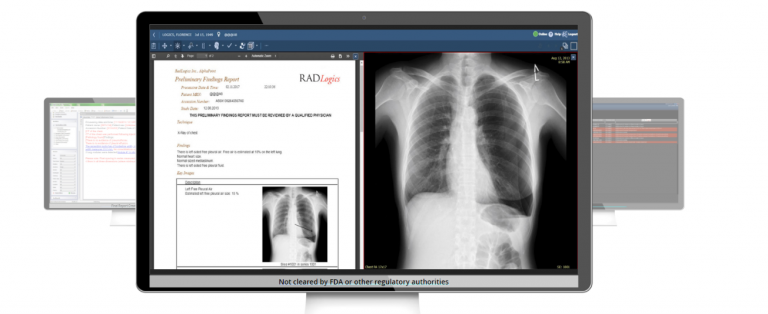
RADLogics, an Israeli startup focused in developing AI powered healthcare solutions, is working to develop a novel AI powered CT analysis software. This software aims to automatically and accurately diagnose COVID-19 and its main symptoms. The developed software uses multiple datasets from all over the world, including data from infected areas in China, to build 2D and 3D deep learning images that help better diagnose the virus. The company conducted several retrospective experiments to analyze software performance for the detection of suspected COVID-19 thoracic CT features and to evaluate disease evolution in each patient over time using a 3D volume review. The software is expected to improve both the treatment of patients and containment of virus spread by rapidly detecting positive cases in their early stages of infection. Currently, the software is being tested in hospitals in China, Italy and Russia. CT = Computed tomography
FEATURES
- The developed software uses multi datasets from all over the world to create 2D and 3D deep learning images for more accurate CT analysis
- As a feature of the developed software, RADLogics uses a 3D volume review to generate “Corona Score” which measures the percentage of lung volume that is infected by the disease.
ONGOING RESULTS
- Up to now, the software has recorded high precision in diagnosing COVID-19 by rapidly developing its diagnostic algorithm via deep learning.
- The software takes 30 seconds to process 400 CT images (Originally, it takes up to 2 minutes per patient to do a CT scan of a patient’s chest.)
- CT image analysis algorithm was able to differentiate 157 patients across the globe who tested positive and negative for the virus with a 0.996 AUC, 98.2% sensitivity (likelihood of correct identification of individuals with COVID-19) and 92.2% specificity (likelihood of correct identification of individuals without COVID-19).
-
Source(s): Business Insider, Applied Radiology

